
With a final flurry of announcements, CSE Chair Dean Tullsen marked the end of the current faculty hiring season. He did so in confirming that the last two outstanding offers were accepted. That brings CSE's total new appointments to seven faculty members, as well as two announced in 2015 who are starting this fall. "The last two appointments officially close the recruiting cycle, and there is no question that it was a great year for recruiting," said Tullsen. "These new faculty members will bolster some of our core strengths and enable us to establish some significant new directions.”
 He added: “This will expand our research focus and enable us to better address the tremendous demand for a computer science education." The CSE chair went on to list many of the people involved in the recruiting effort (see final paragraph at bottom).
He added: “This will expand our research focus and enable us to better address the tremendous demand for a computer science education." The CSE chair went on to list many of the people involved in the recruiting effort (see final paragraph at bottom).
Among the new faculty hires for 2016-2017, CSE previously announced the appointment of Henrik Christensen (right), who is leaving Georgia Tech to be the faculty Director of UC San Diego's new Contextual Robotics Institute (part of which is located initially in the Qualcomm Institute). Christensen earned his Ph.D. from Aalborg University in 1990 in his native Denmark. He does research on robotics, computer vision and artificial intelligence, and is considered one of the leading roboticists in the world. For more on Christensen, see UC San Diego's July announcement (http://www.cs.ucsd.edu/node/3012).
In addition to Christiensen, CSE is also beefing up its expertise in robotics with the appointment of Laurel Riek (left) as an Associate Professor in the department. Riek is currently the Clare Boothe Luce Assistant Professor at the University of Notre Dame. She received her Ph.D. in Computer Science from the University of Cambridge, and B.S. in Logic and Computation from Carnegie Mellon University. She designs autonomous robots capable of sensing, responding and adapting to human behavior. Riek's research enables robots to robustly solve problems in real-world, safety-critical human environments, such as hospitals, homes, and factories. Her work tackles fundamental and applied problems that make complex, real-world perception and interaction in these spaces so difficult for machines, and her work has applications in manufacturing, neurorehabilitation, and emergency medicine. In addition to robotics, Riek's research interests include human activity understanding, and healthcare engineering. She has received the NSF CAREER Award, AFOSR Young Investigator Award, a Qualcomm Research Scholar Award, and several best-paper awards. In 2014, she was named one of the American Society for Engineering Education's 20 Faculty under 40.
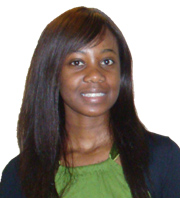
Ndapa Nakashole (right) has been appointed an Assistant Professor in CSE, with an official start date of January 2017. She joins UC San Diego from a three-year postdoctoral fellowship in machine learning at Carnegie Mellon. Nakashole's research interests include machine reading, natural language processing, machine learning and data mining. She uses machine learning to build computer systems that intelligently process and understand human language. She received her Ph.D. from Germany's Saarland University, and her M.S. and B.S. degrees are from the University of Cape Town (South Africa).
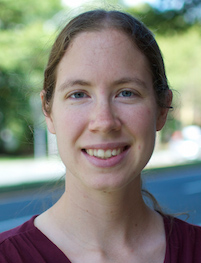 Melissa Gymrek (left), has joint appointments in CSE and the Department of Medicine, and she will split her time between an office in the CSE building and her lab in the School of Medicine. Gymrek is known for her work connecting the dots between genetic variations in humans, traits and human health, and she is CSE's first recruit under the Precision Medicine Initiative launched by the campus in 2015. Gymrek completed her Ph.D. in Bioinformatics and Integrative Genomics in the Harvard-MIT Division of Health Sciences and Technology. She is joining UC San Diego from a postdoc in the Analytical and Translational Genetics Unit at Massachusetts General Hospital and the Broad Institute of MIT and Harvard.
Melissa Gymrek (left), has joint appointments in CSE and the Department of Medicine, and she will split her time between an office in the CSE building and her lab in the School of Medicine. Gymrek is known for her work connecting the dots between genetic variations in humans, traits and human health, and she is CSE's first recruit under the Precision Medicine Initiative launched by the campus in 2015. Gymrek completed her Ph.D. in Bioinformatics and Integrative Genomics in the Harvard-MIT Division of Health Sciences and Technology. She is joining UC San Diego from a postdoc in the Analytical and Translational Genetics Unit at Massachusetts General Hospital and the Broad Institute of MIT and Harvard.
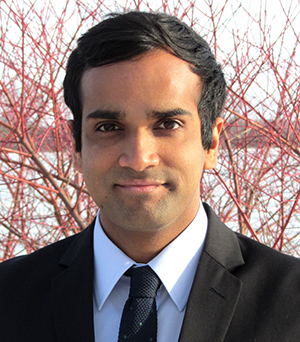 CSE's Database group is getting a new member with the pending arrival of Arun Kumar (right), who joins the department this fall as an Assistant Professor. He works at the intersection of databases and machine learning with a focus on problems related to usability, developability, performance and scalability. Kumar recently completed his Ph.D. at the University of Wisconsin-Madison, where he won the annual Wisconsin CS Graduate Student Research Award for his dissertation research. Other awards include an ACM SIGMOD Best Paper, and an invited paper at ACM TODS. Kumar builds systems and tools, among them: the Hamlet project, which grew out of a machine-learning paper titled "To Join or Not to Join"; as well as project Santoku and Orion which optimize various machine-learning models over normalized data. Some of his tools are also available through the open-source library, MADlib, and there has been substantial tech-company interest in industrial adoption of ideas from his thesis work. Facebook, LogicBlox and Microsoft had adopted some of the ideas from his thesis work, while Cloudera, EMC and Oracle have adopted some components of his other research. Kumar is now on campus, but he will begin teaching (with a graduate-level research seminar) in the winter quarter.
CSE's Database group is getting a new member with the pending arrival of Arun Kumar (right), who joins the department this fall as an Assistant Professor. He works at the intersection of databases and machine learning with a focus on problems related to usability, developability, performance and scalability. Kumar recently completed his Ph.D. at the University of Wisconsin-Madison, where he won the annual Wisconsin CS Graduate Student Research Award for his dissertation research. Other awards include an ACM SIGMOD Best Paper, and an invited paper at ACM TODS. Kumar builds systems and tools, among them: the Hamlet project, which grew out of a machine-learning paper titled "To Join or Not to Join"; as well as project Santoku and Orion which optimize various machine-learning models over normalized data. Some of his tools are also available through the open-source library, MADlib, and there has been substantial tech-company interest in industrial adoption of ideas from his thesis work. Facebook, LogicBlox and Microsoft had adopted some of the ideas from his thesis work, while Cloudera, EMC and Oracle have adopted some components of his other research. Kumar is now on campus, but he will begin teaching (with a graduate-level research seminar) in the winter quarter.
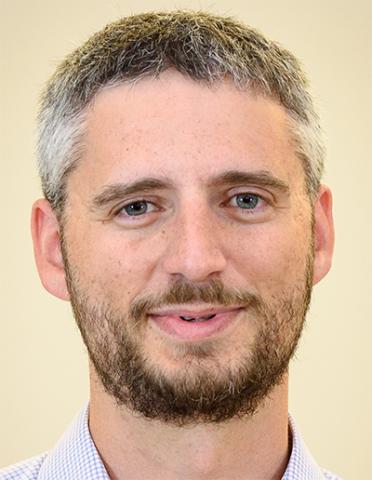 Assistant Professor Aaron Schulman (left) will also begin teaching in the winter quarter. He officially started July 1, and is transitioning to be full-time in San Diego this November after moving from his current postdoctoral research job at Stanford. Schulman becomes a member of the Systems and Networking group in CSE, but his wide-ranging interests go beyond computer systems and networking to include operating systems, security and even embedded systems. He has improved the efficiency of wireless networks, cellular network flexibility, and the energy efficiency of mobile applications. Schulman also quantifies residential Internet network reliability, made progress in securing the web’s public key infrastructure, and identified privacy leaks in mobile devices. Schulman earned his Ph.D. in Computer Science from the University of Maryland in 2013 (and he subsequently received the SIGCOMM Doctoral Dissertation Award for his doctoral thesis on "Observing and Improving the Reliability of Internet Last-Mile Links"). Schulman also founded Mellow Research, LLC, a startup that markets BattOr, a power monitor for app developers he invented.
Assistant Professor Aaron Schulman (left) will also begin teaching in the winter quarter. He officially started July 1, and is transitioning to be full-time in San Diego this November after moving from his current postdoctoral research job at Stanford. Schulman becomes a member of the Systems and Networking group in CSE, but his wide-ranging interests go beyond computer systems and networking to include operating systems, security and even embedded systems. He has improved the efficiency of wireless networks, cellular network flexibility, and the energy efficiency of mobile applications. Schulman also quantifies residential Internet network reliability, made progress in securing the web’s public key infrastructure, and identified privacy leaks in mobile devices. Schulman earned his Ph.D. in Computer Science from the University of Maryland in 2013 (and he subsequently received the SIGCOMM Doctoral Dissertation Award for his doctoral thesis on "Observing and Improving the Reliability of Internet Last-Mile Links"). Schulman also founded Mellow Research, LLC, a startup that markets BattOr, a power monitor for app developers he invented.
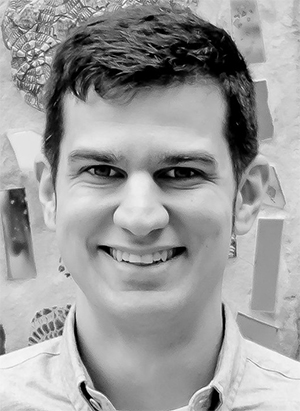 Joe Gibbs Politz (right) joined the UC San Diego faculty in 2016. He worked previously as a visiting instructor at Swarthmore College. Politz studies computer science education, programming languages, compiler design, web programming, and web security. He has recently had two complementary areas of focus: using peer code review in undergraduate courses, and developing the programming language Pyret for use in computer science curricula from middle school to the undergraduate level (as part of the Bootstrap curricular outreach effort to bring programming ideas to courses such as math and physics at middle and high school level -- targeting a broader base of students with computer science topics.) Politz teaches students to test, document, and explain both their own code and the code of others. Politz received his Ph.D. in computer science from Brown University in May 2016, and his B.S. in computer science from Worcester Polytechnic Institute in 2009. He has also worked on web security at Google through software engineering internships.
Joe Gibbs Politz (right) joined the UC San Diego faculty in 2016. He worked previously as a visiting instructor at Swarthmore College. Politz studies computer science education, programming languages, compiler design, web programming, and web security. He has recently had two complementary areas of focus: using peer code review in undergraduate courses, and developing the programming language Pyret for use in computer science curricula from middle school to the undergraduate level (as part of the Bootstrap curricular outreach effort to bring programming ideas to courses such as math and physics at middle and high school level -- targeting a broader base of students with computer science topics.) Politz teaches students to test, document, and explain both their own code and the code of others. Politz received his Ph.D. in computer science from Brown University in May 2016, and his B.S. in computer science from Worcester Polytechnic Institute in 2009. He has also worked on web security at Google through software engineering internships.
Other New Arrivals
Although their appointments were announced a year ago by the department, Assistant Professors Deian Stefan and Manmohan Chandraker requested delays before starting this fall.
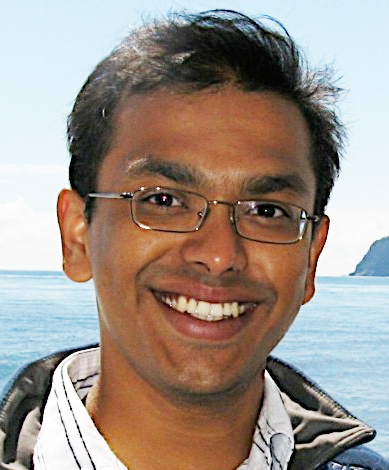 Professor Manmohan Chandraker (left) worked at NEC Labs America in Cupertino in computer vision before returning to UC San Diego, where he previously completed his Ph.D. in Computer Science in 2009. He did his dissertation under CSE Prof. David Kriegman, and received the 2009 CSE Best Dissertation Award. Subsequently he was a postdoctoral scholar at UC Berkeley in the lab of Prof. Ravi Ramamoorthi, who later moved to CSE at UC San Diego, where he now directs its Center for Visual Computing. Chandraker is now affiliated with Ramamoorthi's center as well as the Contextual Robotics Institute, where his research focuses on self-driving cars and helping robots navigate the real world. The computer vision expert converts 2D images to 3D maps of the world that allow self-driving cars to pinpoint the location of traffic participants such as pedestrians and vehicles. The data are combined with information about the car's surroundings such as lanes, roads and traffic signs. The ultimate goal is to understand the scene, especially in crowded environments. His work on shape recovery from motion cues for complex material and illumination received the Best Paper award at Computer Vision and Pattern Recognition in 2014.
Professor Manmohan Chandraker (left) worked at NEC Labs America in Cupertino in computer vision before returning to UC San Diego, where he previously completed his Ph.D. in Computer Science in 2009. He did his dissertation under CSE Prof. David Kriegman, and received the 2009 CSE Best Dissertation Award. Subsequently he was a postdoctoral scholar at UC Berkeley in the lab of Prof. Ravi Ramamoorthi, who later moved to CSE at UC San Diego, where he now directs its Center for Visual Computing. Chandraker is now affiliated with Ramamoorthi's center as well as the Contextual Robotics Institute, where his research focuses on self-driving cars and helping robots navigate the real world. The computer vision expert converts 2D images to 3D maps of the world that allow self-driving cars to pinpoint the location of traffic participants such as pedestrians and vehicles. The data are combined with information about the car's surroundings such as lanes, roads and traffic signs. The ultimate goal is to understand the scene, especially in crowded environments. His work on shape recovery from motion cues for complex material and illumination received the Best Paper award at Computer Vision and Pattern Recognition in 2014.
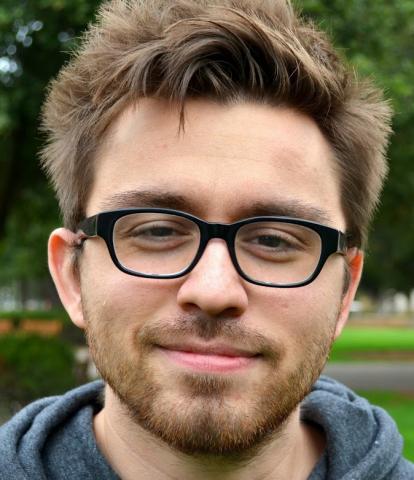 Deian Stefan (right) accepted his appointment as Assistant Professor last year and deferred his arrival to make time to work on his web security startup company, Intrinsic (formerly GitStar), which provides developers with tools for deploying web applications with minimal trust. The company builds on Stefan's prior research on confinement and information-flow control. His research spans systems, security and programming languages, but he is also interested in building principled and practical secure systems (the subject of Stefan's dissertation for his Ph.D. from Stanford University completed in 2015). (See CSE news release about Deian Stefan: http://www.cse.ucsd.edu/node/2841.)
Deian Stefan (right) accepted his appointment as Assistant Professor last year and deferred his arrival to make time to work on his web security startup company, Intrinsic (formerly GitStar), which provides developers with tools for deploying web applications with minimal trust. The company builds on Stefan's prior research on confinement and information-flow control. His research spans systems, security and programming languages, but he is also interested in building principled and practical secure systems (the subject of Stefan's dissertation for his Ph.D. from Stanford University completed in 2015). (See CSE news release about Deian Stefan: http://www.cse.ucsd.edu/node/2841.)
Thanks
Looking back at the hiring cycle, CSE Chair Dean Tullsen thanked Mohan Paturi, Rajesh Gupta and Jacobs School Dean Albert P. Pisano for leading the effort, and professors Alex Snoeren, Sanjoy Dasgupta, Ryan Kastner, Stefan Savage, Mihir Bellare, Vineet Bafna, Christine Alvarado, Pavel Pevzner and Geoffrey Voelker for evaluating the many applicants. Graduate students cited for their "tremendous support" included Dustin Richmond, Joe DeBlasio, Zachary Chase Lipton, Chris Tosh, Niki Vazou, Vicky Papavasileiou, Chunbin Lin, Antonella Wilby, Sunjay Cauligi, Olivia Simpson, Yasmine Kotturi, and John Sarracino. On the staff side, Tullsen thanked "Nataly Herrera, Samira Khazai, Joyce Bernardo, Alice Carr, Leslie Lin, David Bareno, Cheryl Hile, Loretta Smith and Julie Conner" and especially Esra Hembrough for keeping the whole effort organized.

